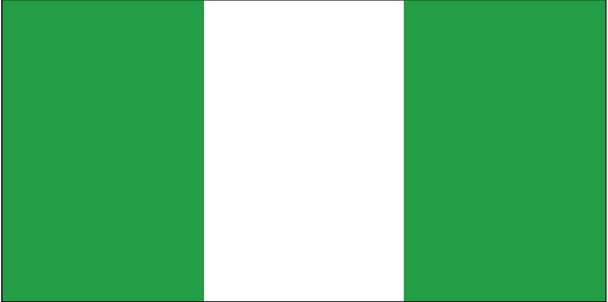Since the Nigerian government ended longstanding gasoline subsidies as of New Year's Day, Nigerians have responded with nationwide strikes and protests, resulting in several deaths. The government has a chance to respond in turn, by addressing the rampant corruption and mismanagement of the country's oil industry.
The gasoline subsidy embodied the worst characteristics of the country's economic governance. In 2011, the subsidy on gasoline cost the government over $9 billion, more than the entire federal government capital budget and about double the subsidy's cost in 2010. Global fuel prices did not, of course, double during this time period. Nigeria's tab skyrocketed thanks to the costly, corrupt system by which the country produces and imports gasoline, as well as rising interest charges and insurance premiums as government failed to pay fuel importers on time.
By the end of 2011, Nigeria owed importers over $4 billion. Relying on the Nigerian National Petroleum Corporation (NNPC), the national oil company, the government devised complex, opaque methods for covering import costs, including swap deals where crude oil was awarded to commodity traders in exchange for gasoline and other refined products.
Officials allowed the subsidy to rise because it included lucrative opportunities for corruption. In 2009, then President Umaru Yar'Adua called the manipulation of prices and supplies "the greatest institutional corruption in the history of the nation." Only when NNPC faced bankruptcy — owing billions of dollars to importers as well as to the treasury — did the government decide to end the subsidy.
This will not eliminate corruption in the oil sector. That would require the kind of coherent reform that the administration of President Goodluck Jonathan has so far postponed. The Petroleum Industry Bill, which would restructure the industry, has idled in parliament for years. NNPC, which is unique among the world's largest national oil companies in its total reliance on international traders to sell its crude, has similarly resisted change. Unable to pay its share of operating expenses, it maintains financing deals with international oil company partners that cut deeply into national earnings. Yet it is allowed to regulate itself and manage the country's four refineries, which produce at 40 percent capacity on the best of days.
Transparency and oversight are limited throughout the sector. The petroleum ministry and regulatory bodies provide no information to the public, and NNPC fails to disclose even an annual financial report much less its audit statements. Most of the sector's financial transactions — including NNPC's earnings, and transfers to the diminished Excess Crude Account — do not appear as part of the budget thereby sidestepping legislative and public scrutiny. Nigeria's reports under the Extractive Industries Transparency Initiative suffer delays, so far covering only the years through 2008. Executive discretion prevails over most decisions, including the allocation of valuable exploration, production and export licenses.
High oil prices and increased production should have made 2010-2011 the most profitable years yet for the Nigeria. However, the country's economic health worsened. Budget deficit estimates exceeded $8 billion in 2011 and, over the last three years, foreign reserves dropped by 40 percent and public debt doubled.
Only a package of reforms will correct the paradox of robust revenue potential and declining fortunes. Removing the subsidy will not solve the larger economic problems unless additional reforms take place, including the re-drafting, passage and implementation of the Petroleum Industry Bill in a manner that eliminates the current system's opportunities for inefficiency and graft.
Much can be done to make the sector more accountable to the public interest. NNPC should make public its financial reports. Discretion and secrecy should be removed from the allocation of licenses and the regulation of exports and imports. The status of the Excess Crude Account requires explanation, as does that of the proposed new sovereign wealth fund. And these reforms must include clear deadlines for action.
To generate economic development, the government will also need to fulfill its promise to transparently use these savings to improve infrastructure and social services. It will also need to implement the public sector cuts announced by President Jonathan on Dec. 8, including a 25 percent reduction in civil servant pay. Moreover, public trust will only be rebuilt through committed investigation and prosecution of corruption, and measures such as declaration of assets.
The problems are well known, but so are the concrete steps that can increase transparency,
accountability and the earnings of the state. They have worked in other countries and can help Nigeria too.
It is not too late for Nigeria's government to make the end of its fuel subsidy the beginning of reform. Citizens will bear the cost of the higher fuel prices. This sacrifice will be worthwhile only if the nation's oil wealth begins to serve the public's interests rather than those of only a favored few
By Alexandra Gillies (Huff Post World)

